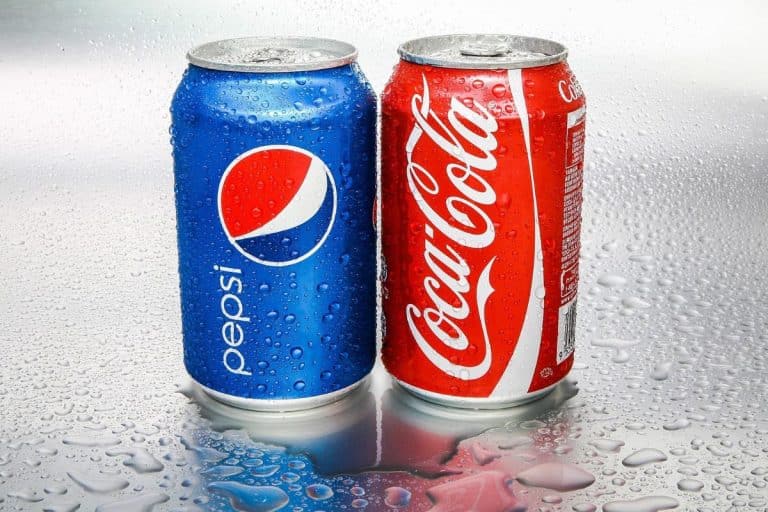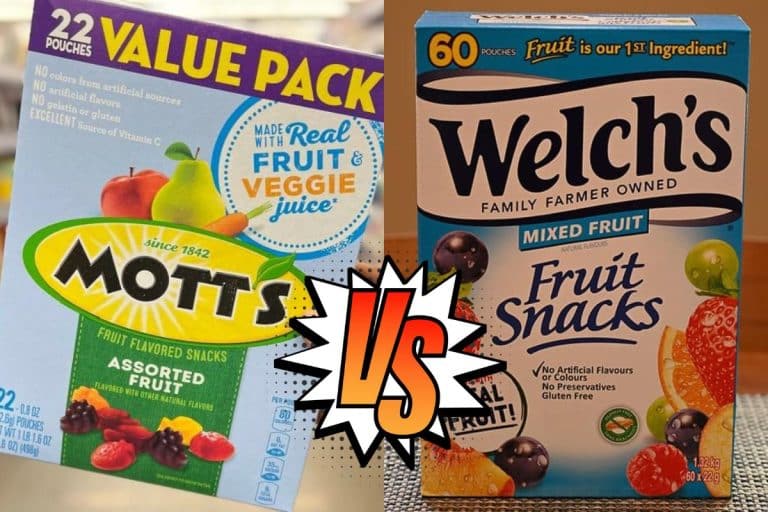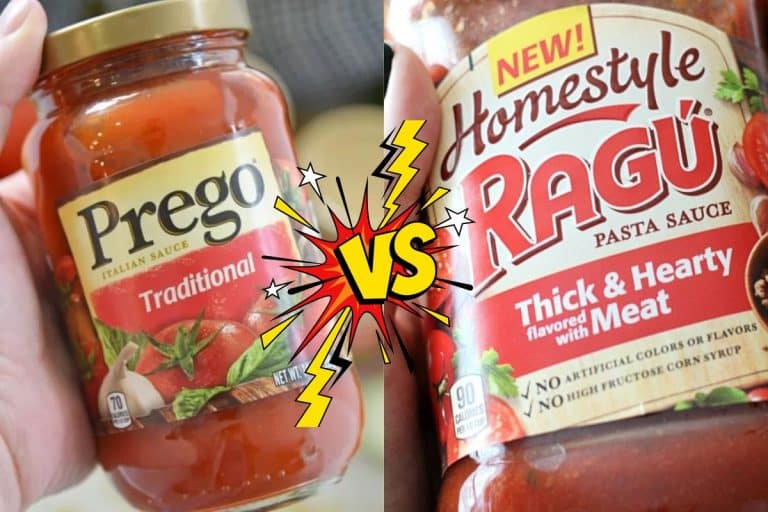Are you curious about the difference between Pepsi and Mountain and wish to know what exactly sets these two renowned sodas apart? This article is here to help. This article shows you the major areas in which both soft drinks differ.
Quick Preview show
Mountain Dew vs. Pepsi has been a recent hot topic among those who fancy the two sodas. There are curiosities about whether Pepsi is better because of its massive popularity or whether Mountain Dew is better because of its distinctive taste. This has prompted my research to know what sets these two amazing soft drinks apart and to know which is better.
PepsiCo produces the popular carbonated beverage Mountain Dew, sometimes styled as Mtn Dew, which has a citrus taste. This beverage can be purchased in a wide variety of flavors, sizes, and limited-edition variations.
Marion, Virginia; Johnson City and Knoxville, Tennessee, were the first locations where the original 1940s-era recipe was sold after its invention by Tennessee beverage bottlers Ally Hartman and Barney. Because Pepsi-Cola now owned the Mountain Dew trademark and manufacturing rights, distribution throughout the United States increased after that year.
Formerly, Mountain Dew lacked caffeine in a number of non-US nations. Since 2012, nations like Canada have mostly sold caffeinated Mountain Dew as their primary commodity. Caffeine-free Pepsi is available in the United States and other countries. Sugar is the second most prevalent ingredient in Mountain Dew, behind caffeine.
Pepsi, on the other hand, has been a household brand since 1961. However, it was formerly called Brad’s Drink by its manufacturer, Caleb Bradham, in 1893 before its name was later changed to Pepsi-Cola in 1898. Afterward, there became a need to shorten its name to simply Pepsi in 1961. Since, this has become a household name among those who fancy the soft drink.
Nutrition Facts about Mountain Dew and Pepsi
Mountain Dew Nutrition Facts
Serving Size: 1 Can (12 ounces)
- Calories — (170)
- Total Fat — 0.00g (0%)
- Cholesterol — 0mg (0%)
- Sodium — 65mg (3%)
- Total Carbohydrate (predominantly sugar) — 46.00g (17%)
- Protein — 0.00g
Pepsi Nutrition Facts
Serving Size:1 Can (12 ounces)
- Calories — (150)
- Total Fat — 0.00g (0%)
- Cholesterol — 0mg (0%)
- Sodium — 30mg (1%)
- Total Carbohydrate (predominantly sugar) — 41.00g (14%)
- Protein — 0.00g
Here is a comparison of the nutrition facts for Mountain Dew and Pepsi:
| Mountain Dew | Pepsi | |
|---|---|---|
| Calories | 170 | 150 |
| Total Fat | 0g | 0g |
| Sodium | 55mg | 40mg |
| Total Carbohydrates | 46g | 41g |
| Protein | 0g | 0g |
| Caffeine | 54mg | 38mg |
Please note that these values may vary slightly depending on the size of the serving and the specific variety of the drink.
From the nutrition facts of Mountain vs. Pepsi, we can see that Mountain Dew edges Pepsi and is higher in terms of total calories, sodium, and sugar level. This means that the sugar content in Mountain Dew is higher than that of Pepsi.
In my opinion, I will say that Pepsi is better than Mountain Dew nutritionally. However, you must be careful about your soda intake. You are at risk of diabetes, tooth decay, obesity/weight gain, and even heart disease if you take too much soda, this is according to Healthline.
Mountain Dew vs. Pepsi Ingredients
Mountain Dew Ingredients
- Yellow 5
- Calcium Disodium Edta
- Erythorbic Acid
- Gum Arabic
- Sodium Citrate
- Caffeine
- Sodium Benzoate
- Natural Flavor
- Citric Acid
- Concentrated Orange Juice
- High Fructose Corn Syrup
- Carbonated Water
Pepsi Ingredients
- Natural Flavor
- Citric Acid
- Caffeine
- Phosphoric Acid
- Sugar
- Caramel Color
- High Fructose Corn Syrup
- Carbonated Water
Caffeine Level in Mountain Dew and Pepsi
Here is a comparison of the caffeine levels in Mountain Dew and Pepsi:
| Mountain Dew | Pepsi | |
|---|---|---|
| Caffeine | 54mg | 38mg |
Please note that these values may vary slightly depending on the size of the serving and the specific variety of the drink. Caffeine levels can also vary depending on how the drinks are prepared (e.g., a larger serving size or a longer brew time can result in a higher caffeine content).
Mountain Dew caffeine
It’s not only Pepsi and several others that compete with Mountain Dew in the caffeinated soft drink market; there are plenty of other options. A 12-ounce serving of this drink has 54 milligrams of caffeine, making it one of the most caffeinated sodas on the market.
The only other sugary drink with more caffeine than Mountain Dew is Surge (68 milligrams). Both Pepsi Zero (69 milligrams) and Zevia (68 milligrams) are diet sodas with no sugar and very few calories; however, they contain more caffeine than water.
Pepsi Caffeine
In the United States, Pepsi is among the most consumed sodas. Many of us enjoy the crispy, pleasant flavor by opening a can anytime we need a cold and chilling taste of the soft drink; however, have you ever thought about what a can of Pepsi contains?
In order to maintain our health, most of us must monitor the amounts of calories, sugar, and caffeine we take in on a daily basis. If you’re keeping tabs on your health, you may be wondering how much caffeine is in a can of Pepsi. A 12-ounce can of Pepsi contains a total of 38 milligrams of caffeine. We can say that this is average when compared to the 54 milligrams of caffeine in Mountain Dew.
FAQs
Which company owns Mountain Dew?
Mountain Dew is owned and manufactured by PepsiCo.
Is Pepsi better than Mountain Dew?
Yes, Pepsi is better than Mountain Dew. When you compare their sugar content and nutritional value, Pepsi is far better. Pepsi has 41.00g of sugar content, while Mountain Dew has 46.00g of sugar. This amounts to both 14% and 17% of sugar levels, respectively.
Does Pepsi have caffeine?
Yes, Pepsi is a caffeinated soft drink. A 12-ounce can of Pepsi contains 38 milligrams of caffeine.
Does Mountain Dew have caffeine?
Mountain Dew contains caffeine. You will find 54 milligrams of caffeine in a 12-ounce can of Mountain Dew.
Conclusion
Having reviewed Mountain Dew vs. Pepsi in terms of history, ingredients, nutrition facts, and caffeine content, we can see that Pepsi is better than Mountain Dew in all areas.
This is because it contains a lower amount of sugar and caffeine. Despite this, it is still advisable to limit your intake of soda to prevent heart disease, obesity, weight gain, and diabetes.



![Does Schweppes Ginger Ale Have Caffeine? [NO!!!]](https://www.brandsprite.com/resources/wp-content/plugins/wp-fastest-cache-premium/pro/images/blank.gif)